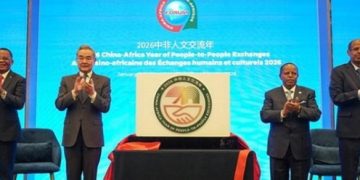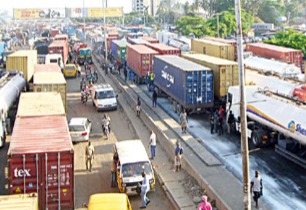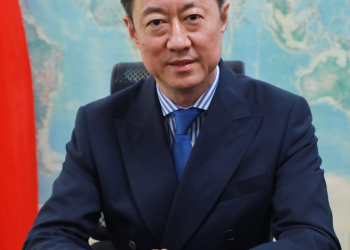By Anthony Nwachukwu
Movement into and out of Apapa, as well as port operations, are becoming problematic once again as the notorious gridlock that once crippled the port city and environs is gradually resurfacing.
In spite of previous interventions, residents, commuters and port workers are now facing renewed evening congestion as truckers and tankers swarm the port access roads daily.
Investigations by the Network of Nigerian Maritime Journalists (NNMJ) revealed that while Apapa roads remain relatively free during the day, a long trail of trucks begins forming by evening from both the Costain and Mile 2 entry points.
From the Ijora-Olopa Bridge to Apapa and from Coconut Bus Stop to Tin Can Island gates, trucks line up in droves, allegedly paying between ₦30,000 and ₦50,000 to secure a spot in the queue.
Sources alleged that some officials of key agencies, including the Nigerian Ports Authority (NPA), Nigerian Shippers Council (NSC), Lagos State Traffic Management Authority (LASTMA), Federal Road Safety Corps (FRSC), and the Nigeria Police, are complicit in the illegal toll collection, turning a blind eye as the situation worsens.
The most affected areas include Wharf Road, Warehouse Road, Commercial Road, Burma Road, and Creek Road. By 5p.m, vehicle owners often abandon their cars and resort to motorcycles to escape the gridlock while their cars are taken out of the affected areas before the close to work daily.
A former National Coordinator of the Port Standing Task Team (PSTT), Moses Fadipe, attributed the resurgence to the return of vested interests who previously profited from the chaos. He noted that the Lagos State Government knows what steps to take to prevent a full-blown crisis.
On his part, President of the Nigerian Institute of Shipping, Martins Enebeli, blamed government insincerity for the relapse.
Enebeli, who also chairs the Nigerian Licensed Ship Chandlers Association, urged the authorities to prioritise rail transport for cargo evacuation from Lagos ports and to revive Eastern and Delta ports to ease pressure on Apapa.
According to him, “bonded terminals should be relocated far from the ports and connected by rail. Government must stop concentrating port operations in the West while neglecting other regions.”
A senior official, speaking anonymously, confirmed that a syndicate involving both state and non-state actors is profiting from the tolls collected from truckers, thereby exacerbating the traffic crisis. He called for urgent federal intervention to dismantle the alleged racketeering network and restore sanity to the Apapa transport corridors.
































